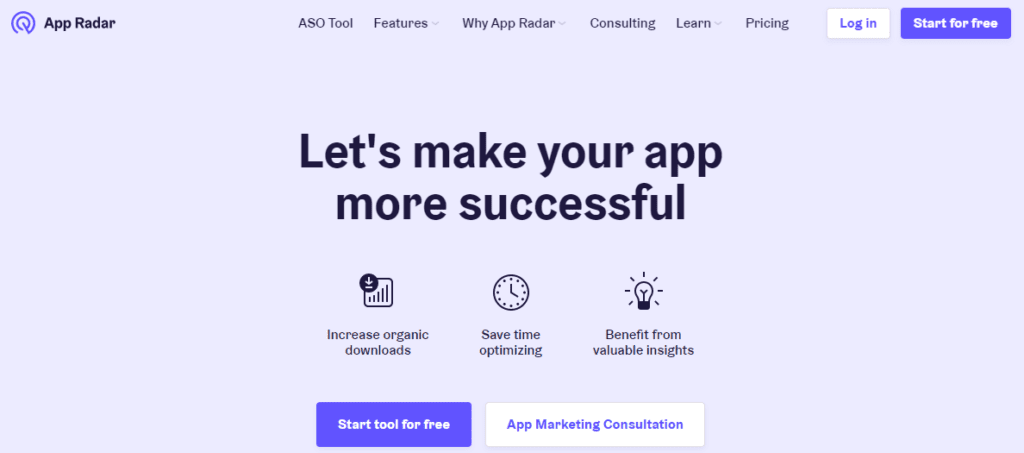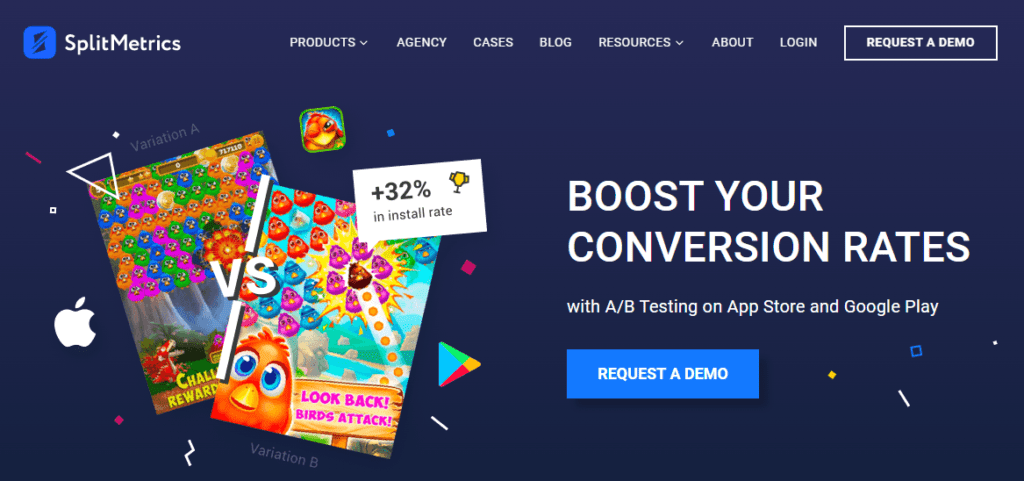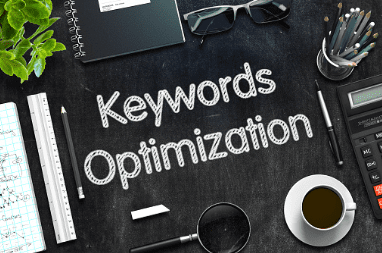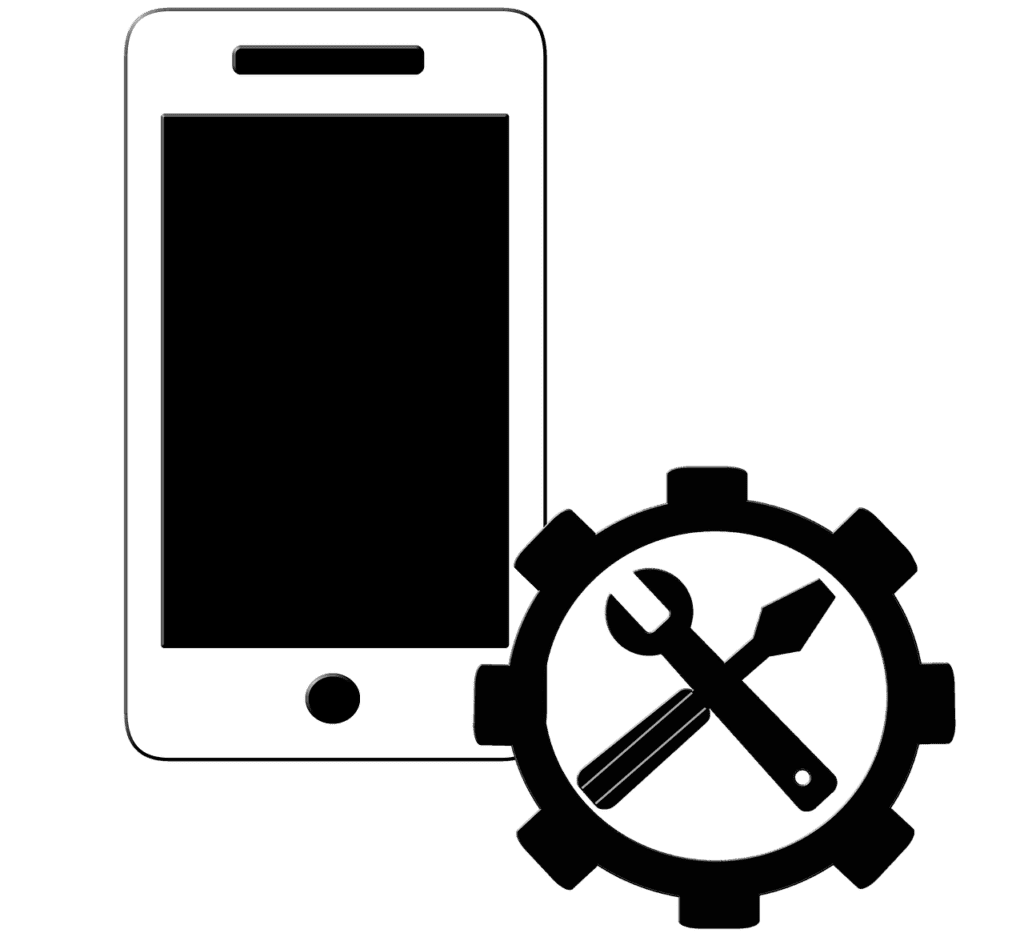
Introduction
App developers use App Store Optimization (ASO) techniques to get your app in the top search results of the app store. With over 2 million apps in Apple’s App Store and over 2.6 million Android apps in the Google Play store, it is difficult to stand out in the crowd but not impossible. Like marketers use SEO, App developers use ASO to rank their apps on the app store.
Although the actual algorithms for ASO ranking are still unknown and keep changing, we still use certain things to rank in the top rows.
Use ASO techniques to reach more people and receive more downloads by ranking your app higher.
How to do App Store Optimization?
Here are some of the steps to do App Store Optimization:
1. Optimize Your App’s Title and Subtitle
Choose a unique and descriptive title and subtitle that includes the main keywords related to your app.
2. Add Keywords
Use relevant metadata in your app to improve searchability.
3. Write Engaging App Descriptions
Your app’s description should be engaging and informative, highlighting the key features and benefits of your app.
4. Add Compelling Visual Elements
Design an eye-catching icon and include screenshots and videos in the app preview to attract users.
5. Encourage Reviews and Ratings
Reviews and ratings can significantly impact your app’s ranking.
6. Maximize Downloads
The number of downloads is a key factor in app store rankings. Use various strategies to increase your app’s downloads.
7. Update Regularly
Regular updates signal to the app store that your app is being maintained, which can positively impact rankings.
8. Monitor Results and Keep Testing
Regularly check your app’s performance in the app store and make necessary adjustments based on the results.
How Important is App Store Optimization?

The primary goal of App Store Optimization is to increase the number of loyal users and app downloads. What should you do to get easily discoverable by the right users? Right, maximize your downloads by understanding how to boost your organic growth.
However, before we jump onto that, we must understand what people are searching for and how they find apps.
ASO improves app visibility to stand out in the app store. People cannot download your application until they find it.
Finding the thing and being discovered by high-quality and relevant users is equally important.
ASO matches your app to relevant keywords to reach the right people.
The app generates revenue with nuanced ways to monetize your app with in-app purchases, ads, and subscription models. Yet, after this much hard work, if your app store-listing page is not converting, meaning convincing other users to download the app, your digital marketing money is going to waste.
ASO also involves Conversion Rate Optimization by getting people to click through and download your application.
Now that you understand how vital App Store Optimization is keep reading to head to the next talk of the town.
Key Takeaways
- Understand Your Audience: It is crucial to know your target audience, their preferences, and behavior. Tailor your app’s metadata and description to match their search and usage patterns.
- Keyword Optimization: Keywords are crucial for app store search algorithms. Regularly update your app’s keywords based on trends and user search patterns.
- Visual Appeal: An attractive icon, screenshots, and preview videos can significantly increase download rates.
- Collect and Respond to Reviews: User reviews and ratings impact your app’s ranking.
What is the Difference Between ASO and SEO?

ASO, often known as app store SEO (Search Engine Optimization), shares several similarities with SEO. From conversion optimization and backlinking to keyword optimization, they possess similar techniques.
In contrast, the main differences between ASO and SEO are ranking factors. In addition to that, websites use SEO, whereas ASO is for mobile apps.
Ranking factors for SEO over a web browser such as Google Search involves more than 200 aspects. While the ranking list for ASO is much shorter, many people are still unsure how it goes.
Our list compiles some of the best ASO tools to make your hard work pay off. Few cover a specific aspect of ASO, like A/B testing or App Performance, whereas others provide a proper workflow tool.
Let us review a few popular App Store Optimization tools on the market.
Best Android App Store Optimization Tools
1. App Radar

App Radar is the best AAndroid ASO tool that supports you throughout the entire ASO process. It is regarded as the first ASO workflow tool that covers all the steps to help grow your app business organically.
Be it monitoring, optimizing, analyzing, monetizing, or publishing, App Radar is a one-stop destination for all.
App Radar provides features that help save time and automate your ASO. Watch your competitors, analyze your track, and then take the necessary steps to improve your performance with this tool.
Avoid the complexity of ASO and drive excellent results with App Radar ASO tool features and their coverage.
2. SplitMetrics

SplitMetrics is another ASO tool for Android that mainly focuses on conversion optimization and A/B testing. It increases your app conversion by optimizing icons, screenshots, and data, letting you figure out the elements that work for your target audience.
Thus, make necessary improvements to get better performance. A/B testing keeps track of user interaction with your app. SplitMetrics is perfect for those individuals who like to experiment and run tests regularly.
App Store Optimization Techniques & Services
1. Review & Sentiment Analysis

App store ratings and reviews make a crucial point in developing user perception about your app when comparing it with multiple apps to download or purchase one. ASO tools provide data on these reviews and ratings alongside other app users’ feedback.
Companies like Apptentive and AppBot provide this service with ASO services or solely focus on giving developers data on how different individuals react to their apps.
2. Keyword Optimization

Keyword optimization counts every text detail over your app’s page, from the app name to what it is all about! It is essential, but so is relatable content. You must persuade users to download your app in just a few words.
App store keyword optimization is difficult to crack, as you cannot just drop the keywords. Each day, ranking algorithms are getting smarter, and even users will find such behavior irritating, resulting in a negative rating for your app.
3. A/B Testing

No matter how efficient app developers think their mobile UI or craft graphics and text are for an app marketing copy, it is evident they will have to keep altering it now and then.
A/B testing is the go-to technique that defines what version of UI element or an app marketing copy performs the best.
Do Apps Need SEO?

A good ASO strategy is not the only way to increase app downloads. Some other factors impact how other users come across your app.
Digital marketing, family, colleagues, company website, friends, search engines, and advertisements play a massive role in your consumer acquisition.
Technically, if you have ruled out SEO for your application as a sole investment, you are stopping 27% of potential organic traffic from Google search to discover your app.
FAQ
What are the best practices for App Store Optimization?
These are the best practices for App Store Optimization (ASO):
- Understanding your target audience.
- Optimizing your app’s title and keywords.
- Writing an engaging app description.
- Adding compelling visual components.
- Encouraging user reviews and ratings.
- Maximizing downloads.
- Updating your app regularly.
- Continuously monitoring and testing your ASO strategies.
How much does App Store Optimization cost?
The cost of App Store Optimization can vary greatly depending on your app’s complexity, your market’s competitiveness, and the level of service you require.
Some companies offer ASO services for a few hundred dollars monthly. Others may charge several thousand dollars for a comprehensive, ongoing ASO strategy.
What are some of the best App Store Optimization tools?
Here are some of the best App Store Optimization tools:
Conclusion
ASO tools continue to outperform growing trends. With the evolution in time, the value of apps has become an essential marketing tactic to get into the game.
Today, one has to get apps discovered by users organically over the major app stores, ranking at the top. We hope that now you have practical steps to generate a better and more refined position for your app in the app store.
More Resources:
What Is A/B Testing? A Quick Introduction
Shopify SEO: Tips To Optimize Your Shopify Store In 2023

Vijay Kumar is a digital marketing expert and founder of TechZant.
He is passionate about helping businesses grow their online presence through SEO and data-driven strategies.



